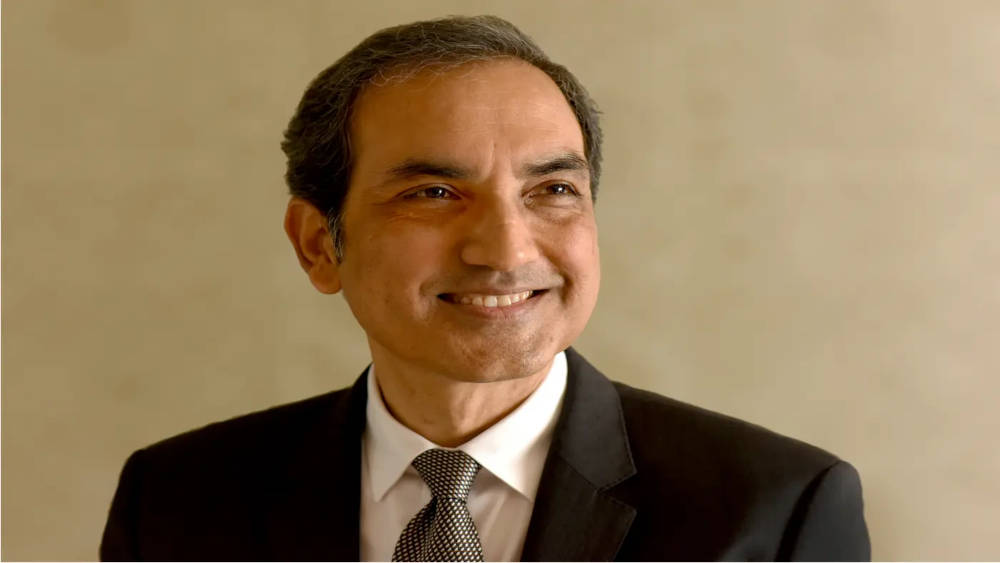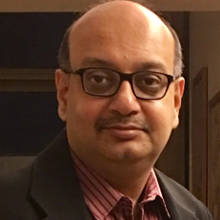[Rohit Jawa, HUL's new Managing Director & CEO. Source: HUL]
Two weeks ago, when the news about the CEO transition from Sanjiv Mehta to Rohit Jawa at Hindustan Unilever hit the headlines, it didn’t make quite as much of an impact as it would have made even a decade ago. In contrast, when TCS announced its sudden CEO transition when Rajesh Gopinathan announced he was stepping down, the story continued to hog the headlines for the next few days.
A new CEO appointment at HUL was always closely watched. There would be intense speculation in the lead-up about possible successors. After all, it was one of the country’s best known corporations with the reputation of being one of the biggest CEO factories in India Inc.
In real terms, none of that has changed. HUL remains a powerhouse of leadership talent, but more so for Unilever across the world.
However, India has evolved. The sheen that HUL enjoyed as a company to work for, has to some extent, eroded. Today, a clutch of global companies—McKinsey, Goldman Sachs, Amazon and Google—jostle for attention at India’s business school campuses. Senior executives at HUL may not be as big a prized catch for other leading companies in India as they once were.
Yet, the attention of every Lever watcher has somehow shifted from its headquarters in Mumbai to London. Twice in the past two decades, leaders from HUL came close to bagging the top job at Unilever. MS ‘Vindi’ Banga and Harish Manwani were fierce contenders when the time to pick Patrick Cescau’s successor came up in 2008. A few years later, Nitin Paranjpe was seen as a potential candidate to replace Paul Polman in 2018. On both occasions, they missed out by a whisker. (It was said jokingly that the so-called reverse takeover of Unilever by Hindustan Lever managers had been temporarily averted!)
The members of the powerful old boys club at HUL still keep in touch with all the goings-on at their beloved company through WhatsApp group conversations. Old timers still look forward to exchanging notes at their much sought after alumni meets. Past directors customarily get invited by the incumbent HUL chairman for a powwow every year. None of them miss that if they can help it.
Yet, privately, former Lever managers will quietly aver that HUL no longer sets the pace it once did in the broader corporate scene in India. Even its avowed thought leadership in the consumer packaged goods arena has gradually slipped away. Or maybe the gap between HUL and the rest has significantly narrowed.
When President Biden nominated Ajay Banga as president-designate of the World Bank a few weeks ago, it was yet another indication that our local ambitions and aspirations have undergone a sea change.
There’s a bit more to this phenomenon than just rising local aspirations. Today, India is on a roll. Many people regard it as the seat of one of the most exciting economic transformations in the world. India needs business leaders and innovators to power the India story and lift billions of people from poverty. Will that happen if its best and brightest leadership talent see their future at the apex of some of the world’s biggest global corporations, instead of building for and in India? Well, that’s debatable.
What isn’t debatable is that there was once a time when a long line of HLL chairmen—Prakash Tandon, T Thomas, AS Ganguly and SM Datta—built the foundations of an iconic company, ensured HLL was a jewel in the crown in the Unilever world and worked hard to satisfy Indian shareholders, instead of kowtowing to their bosses in London. Brands like Vim (a global Unilever brand, adapted for the Indian market as Vim Bar), Fair & Lovely, Wheel, Rin, Lipton Taaza and Lakme, tailored to meet the needs of local consumers, would never have been built without that spirit of independence.
Perhaps that was a different era of licence raj and FERA. Once the country opened up, the process of ‘Unileverisation of HUL’ was inevitable. Subsequent chairmen like Keki Dadiseth and Vindi Banga opened the door to a closer integration with Unilever.
Today, it may be a settled debate inside HUL, but not so at ITC. Like HUL, ITC had a long line of chairmen like Ajit Haksar, Jagdish Narayan Sapru and even YC Deveshwar, who kept UK-headquartered multinational BAT (formerly known as British American Tobacco) at bay, instead building ITC as a strong Indian transnational company. The fact is, ITC hasn’t done too badly either.
Back in 2007, an in-depth story published in The Economic Times cast the spotlight on the contrasting operating philosophies between ITC and HUL when the battle between the rivals was at its peak.
"One perhaps needs to see the creation of new and exciting growth opportunities beyond tobacco also as a smart way to checkmate BAT. The logic is simple: from the mid-nineties onwards, HUL managers were promised global careers at fancy expat salaries — and those became more aspirational than painstakingly climb the hierarchy at HUL.
“ITC had witnessed this trend too: it had lost three senior managers it had seconded to BAT. One of them, a senior market research executive, in fact, chose to quit ITC when it was time to return to India, joined an agency for a while and then eventually moved back to BAT at its London HQ.
“That made the chairman livid — and soon there was a complete ban on secondments. So the only way to keep his troops motivated — and BAT at bay — was to offer them plenty of action in India itself, ample operating freedom for the CEOs of these businesses, backed by resources and a commitment to sustain losses, as long as the business was confident of delivering results.”
The fierce determination and commitment to building a pipeline of business leaders for India that HLL demonstrated for decades may not carry as much weight in a globalised world. Yet the high standards that the earlier generation of leaders set back then, especially despite many constraints, remains a golden era for management development in India.
In a riveting interaction at Stanford in 2015, Ajay Banga spoke about his career in two halves: the first decade and a half spent in India and the second half spent in developed markets like the US. Banga said he had made a deliberate choice to stick to the more predictable developed markets, rather than deal with the uncertainty that comes with infrastructure voids and red tape in India.
On the other hand, back then, a majority of a long line of HUL managers, who were sent on secondments overseas as part of their leadership development process, were meant to come back and serve in India. These leaders had the best of both worlds: the rootedness of starting their careers at Etah, a dusty village in Uttar Pradesh, living with local residents for four months and then pounding the pavements, selling soap, tea and shampoo sachets to small kirana outlets in nondescript towns across the length and breadth of the country.
However, during their foreign postings in Brazil or Philippines, these managers would often privately admit that their secondments weren’t quite as exciting a learning journey as being part of the incredible organisation in India. Partly because of the lack of an equally strong corporate culture in these outposts and also because these Unilever subsidiaries did not attract the same kind of blue-blooded talent that HUL did.
Therefore, the moot question to ask: what do we in India need more of? Leaders that dominate global business institutions or those who can nurture local institutions with a make-in-India mindset?
Dig deeper
Big Story: A ringside view of the battle between HUL and ITC (Published in ET in July, 2007)
(A shorter version of this Strategic Intent column was published in Business Standard)


Ajay Kelkar on Mar 29, 2023 8:03 a.m. said
Timely article IG. The only comment I wanted to offer was the nuance that leadership itself is far more wide-based in India. From the days when HUL was the critical CEO factory to today's era, where scaling a startup may provide a far superior width of experience than the structured Etah to Unilever house journey.